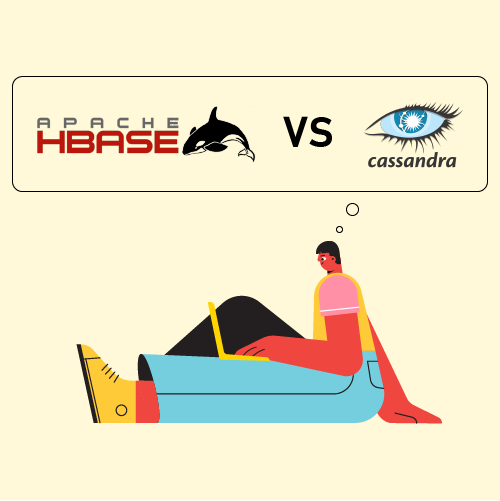Launching your own product or software has become a norm in the market. Every budding entrepreneur is excited about launching their own business and gain success like one populated by Facebook, Amazon, and Instagram.
But, is it that easier?
With every second person having a unique and impressive idea, the competition in every market is skyrocketing. This is creating pressure on the Entrepreneurs to launch their idea before anyone else hit the market with the same proposal or the market need changes.
Understanding the current market needs and competing with the existing mobility solutions is still possible by performing competitive analysis and market research.
But, how to prepare for something that may happen in the future? How to ensure that the market needs won’t change by the time your product enters the market? How to make it certain that all of your efforts, time and funds invested in the app development process won’t go in vain?
Two effective methods to verify this are MVP and EVP, about which we will discuss in detail in this article. Further, we will look into which one is the right choice for your startup: MVP vs EVP.

We will be going through many facets to help you get a clear idea of which of the two is what your startup needs, starting with the definition of the concepts first.
Let’s start with the concept that has existed longer – MVP.
MVP – What It is and How It Came into Existence
MVP (Minimal Viable Product), the approach popularized by Eric Resin, refers to launching the smallest possible workable version of the product and doing iterations is based on receiving consistent customer feedback and other insights.
In other words, a bare bone structure of the product is launched in the market so as to test the idea and see customer reactions.
Based on the actionable data obtained, the startup either upgrade their MVP with more features, launch it in the market, and wait for next customer reactions on it. Or, they rollback their MVP app to an earlier version and test it in the market with newer implementations.
This process continues until the end product hits the market –
[detailed information about which is available in this digestible guide to Minimal Viable Products (MVP).]
Now as we have looked into what is MVP, let’s turn towards EVP app development approach.
EVP – What It is and How It Came into Existence
EVP (Exceptional Viable Product), the term coined by Rand Fishkin- the co-founder of Moz, refers to the process of launching the finest version of a product. It is based on performing extensive iterations on the designed product and considering a myriad of customer feedback.
In this application development process, the initial product is designed and tested using the distributed Agile development methodology involving a group of loyal customers.
Once the EVP is tried, tested and improved to the finest version, it is launched in the market to build the best impression in the first time itself.
While we are now familiar with the basics of both the concepts, let’s take a deeper look into the concepts using the cake model of Product strategies introduced by Brandon Schauer, Chief Executive of Adaptive Path.
Dry Cake Model
According to Brandon Schauer, the software and product development companies, who have a shoestring budget, work upon the minimal features and launch a plain dry cake. As they receive the customer feedback, funds, and other resources, they update it with other features like icing or filling to deliver a refreshed experience and continue this practice until the end product is delivered.
While it seems operationally sensible, the model results in a lower positive response. This is because a dry cake fails to please customers. Besides, it is easy to develop, which creates higher competition and lower success rate – a situation that we denote as MVP in the Software Development domain.
Cupcake Model
In the case of cupcake model, which relates to Fishkin’s EVP development approach, Brandon says that a small yet complete product (including icing or filling) should be delivered to the market.
This appeals to the customers looking for a cake and thus, results in better response. Later, the same process is considered to launch a bigger version of the product. This helps to keep the users engaged at all the stages of product delivered.
Now that have gained a quick glance of what EVP is and its basics, let’s look further into a comparative analysis of both the development approaches.
Difference Between MVP and EVP
As already shared, the two development approaches follow two entirely different roadmaps.
Delving into it further, let us now look at what differentiates the former from the latter before we move on to what should be chosen by startups. –
- MVP focuses on making an earlier entry to the market and at a limited budget. A minimal version of the product is designed using the prime features and functionalities of the end product and launched in the market to gain customer feedback and in some cases to raise money for the mobile app.Whereas, the concept of EVP revolves around making a bit late, but impressive entry. Under this category, the product version is launched in the market only when it is exceptionally good.
- MVP is the most initial version of your product, designed using only one or two of the basic functionalities. It is not possible to think of a workable app version beyond it. Whereas, EVP can be close-to-done version. This is because the main aim behind EVP app development is to deliver higher value to the customers, and not launching the least app features.
- In the case of MVP app development, the product version is launched into the market and tested by the real audience. Whereas, EVP is not made available to the market directly. It is tested in-house by the developers and limited loyal customers firstly and once approved, it is launched into the real world.
- In the former approach, different ways to test an MVP are executed until a good product is received. But, in the case of EVP, testing and iterations process is continue further. It is considered till a perfect version of the product is ready.
With this, we have looked into what are the characteristics of both the approaches, bringing us to the part where we look at when to choose which.
MVP vs EVP: What to Choose When
When it comes to choosing between the two prevalent software and mobile app development approaches, considering Minimal Viable Products can be a good idea when:-
- You are looking to validate your app idea plus make an early entry to the market.
- There’s low competition in your niche market.
- You demand lower development timeline and cost.
- You are focusing on a short-term goal.
- Your startup is new in the market and has lower market visibility.
Whereas, investing in EVP app development is the optimal solution for startups when:-
- You are looking to make the perfect impression on the customers in the first run itself.
- The competition in the market is intense, with no opportunity to rise slowly and gradually.
- You are ready to invest a higher amount of development time and cost.
- You are planning to achieve some long-term goal.
- Your startup has strong brand visibility in the market.
While the decision of picking the right approach for your startup between MVP and EVP rests with you, it is necessary to consider that both are completely different strategies. MVP is a blessing for those who have a limited budget and wish to make their presence in the mobile market progressively. Whereas, EVP is the right solution for those who want to build an exceptional impression on the user base without worrying about the budget.
As parting notes, going with choosing one over other won’t be the best move. It is better to use the best of both, meaning begin with MVP, test and iterate your product to the point it feels like the product is ready to deliver. Then, analyze the product based on the concept of EVP and iterate it again. And finally, launch the version you are most satisfied with.
If still confused about which app development approach to go with, connect with our mobile app consultants.




Which Mobile Platform Should Startups Choose in 2021: Android Or iOS?
Back in 2008, the iOS App Store was launched with 500 apps. Today that number has skyrocketed to 1.85 million apps that are available for users to download. Android users have a bigger app universe to browse from that consists of over 2.56 million apps available in the Google Play Store. It is safe to…

Kotlin vs Scala: Choose Right JVM Language for App Developers
“The folly of one man is the fortune of another” As quoted by Francis Bacon, meaning, ‘One man’s misery or misfortune is the fortune of another.’ This saying has become true for the JVM world. With the fall of Java – the programming language that entered the market in 1995 and changed the complete story,…

HBase vs Cassandra: Which is Better of the Two NoSQL Databases?
Selecting the best database management system is the key to ensure effective, streamlined app development process and a successful end outcome. However, choosing an ideal system for a project is not very easy for there are always a number of details to be considered at every turn. Especially when it impacts the performance of your…








